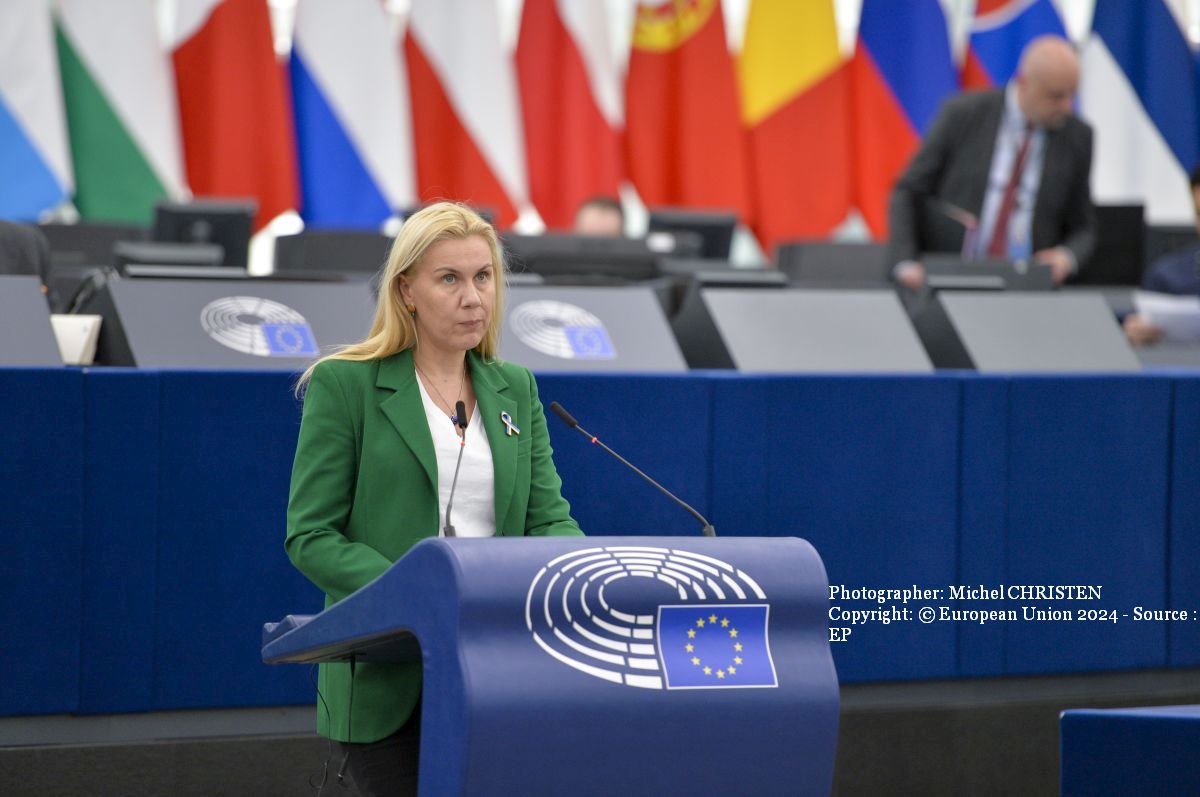Migration – Challenges and Benefits
On December 19, the Basilica of the 12 Apostles in Rome hosted the 6th edition of the Christmas concert called Traditions Through the Eyes of Children

Corina Cristea, 24.12.2021, 14:00
On December 19, the Basilica of the 12 Apostles in Rome hosted the 6th edition of the Christmas concert called Traditions Through the Eyes of Children. The organizers were the Insieme per l’Athos – Onlus Association, the Accademia di Romania in Rome, and the Romanian Orthodox Bishopric of Italy. They said that most of the children taking part were born in Italy, but that they are open to the old traditions of their parents, and have got to know them better by visiting Romanian parishes in Italy, and attending Romanian language courses. We are talking about a sliver of Romania far from home, an example of integration of millions of Romanians in their adoptive countries.
Eugen Tomac is a EuroMP well acquainted with the issues that Romanians have abroad. He spoke to Radio Romania about the problems and situations that he saw in the communities abroad, about the way in which they organize, and about how the Romanian state can help them:
“We have lots of Sunday schools, we have a lot of Orthodox, Catholic, Greek Orthodox, and Protestant churches across the world. We visited many of them, people in many places felt like they should organize, and they did. There is one very important thing too. I have met Romanians who have left the country several years ago, and they speak the adoptive language at home with their children, and their children do not speak Romanian. I have met people who left the country 40 to 50 years ago, they had children away from the country, and at home they only spoke Romanian, and held on to all the holidays, so it’s all a matter of will. If you care about your identity, you hang on to it, and keep it just as you have inherited it. If they don’t have this inclination to keep ties to one’s roots, people assimilate. What the state should do, however, is to create tools to support these existing Sunday schools, cultural institutes with a stronger cultural agenda, rich in events, and, of course, the Internet nowadays helps us communicate in real time, following effortlessly what happens in our country.
The estimated number of Romanians living abroad is about 10 million, including the communities in the diaspora and the traditional ethnic communities in neighboring countries. Most of the people who moved away live in Italy, Spain, and the UK, while the largest ethnic communities are in the Republic of Moldova, Ukraine, and Serbia. Information gained more recently on mobility indicates that the countries of destination are shifting. If at first the main countries of destination were Italy, Spain, Portugal, and Greece, now the trend is towards Western and Northern Europe, France, the UK, Benelux, Germany, Denmark, and Scandinavian countries. Statistics show that ethnic Romanians around the country’s borders are also caught up in this trend of economic migration, finding fellow Romanians in destination countries. They all have adapted to their new homes, but are also facing challenges. The Romanian minority in Serbia, for instance, faces the fact that the Romanian Orthodox Church is not recognized in that country, where most ethnics live in the Timoc Valley. Beyond the Romanian inhabited region of Vojvodina, radio services in Romanian are extremely limited, as well as access to education in the mother tongue. Here is Eugen Tomac once again:
“Romanians in the vicinity have a different set of issues, and it is visibly different from one state to another. The Republic of Moldova is in itself a very complex issue, the relationship with Romanians in Serbia and the Balkans has very different aspects, which are very important and need a certain type of attention, using different instruments than bilateral ones. Of course, we cannot neglect a reality that I regret, which certain Romanian state institutions are treating superficially, notwithstanding the Foreign Ministry, the relationship with the half a million Romanians in the neighboring state, I am referring to our fellow ethnics in Bukovina, Southern Bessarabia, and the part of Maramures that is in Ukraine.
The situation of Romanians working in the EU is very different, and one of the issues they face is working conditions. Solid knowledge of legal rights and proper assistance from the authorities in host countries can reduce most of the abuses perpetrated against them, according to Eugen Tomac. He recalled how important it is for them to know their rights, but also for the network of labor attaches that Romanian has in Europe to function properly. A considerable number of Romanians also work outside of European borders. Tomac told us that they should have better consular services in those countries, in order to avoid any number of abuses.






























